Focus
Your Present Location: HOME> Focus-
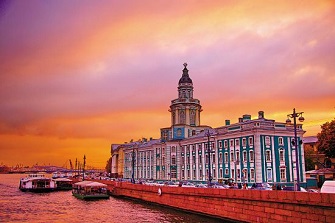
Wang Wen: Witnessing progress through wheels of time
Nevertheless, from these trips I have recognized that history is unpredictable. The transformation from glory to decay, and from unity to division is always hard to notice. The political unrest in Chile and the Hong Kong Special Administrative Region of China in 2019 has further proven this. Under such metamorphosis, China's rise has reached a moment that is the nearest to the country's great rejuvenation. The Chinese need to observe the world more carefully, remain humble and take lessons from those once powerful major countries and emerging economies.
2019-11-19 -
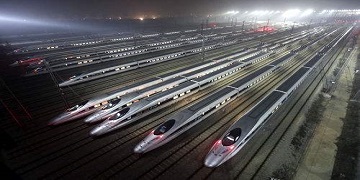
He Yafei: China Needs the World and Vice Versa
China’s view of the world can be summed up succinctly by President Xi Jinping’s remark that “the world has been undergoing the most profound changes unseen in the last century.” On China’s international engagements, my conclusion is pure and simple: China needs the world and the world also needs China. Please note carefully that I said “need,” which should not be taken to mean that some relationships are indispensable.
2019-11-18 -

Dong Shaopeng: US pension fund backs A-share investment
A US federal retirement fund has decided to stick to its original plan of investing in the Chinese mainland's A-share markets despite fierce opposition from some US senators amid the two countries' prolonged trade row.
2019-11-15 -
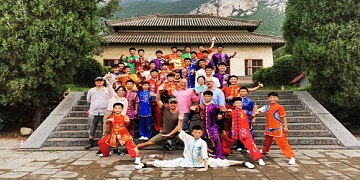
Ding Gang: Chinese-foreign co-production documentary on 70th PRC founding anniversary makes global debut
The biggest birthday party the world has ever seen is being held this year as nearly 1.4 billion people across China are marking the 70th anniversary of the founding of the People's Republic of China with a year-long celebration.
2019-11-15 -
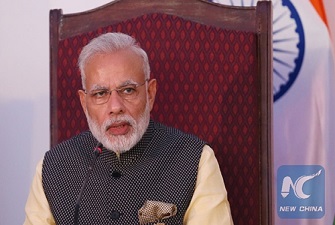
Ding Gang: Many questions for India after temple verdict
The Indian Supreme Court's decision on Saturday made history by clearing the decks for the construction of a Hindu temple by giving the ownership of a disputed plot of land at Ayodhya in the northern state of Uttar Pradesh to Hindus.
2019-11-14 -
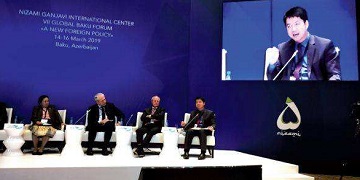
Wang Wen: ‘Gn’ shows how power structures shape new intl governance mechanism
It is hard to imagine that Azerbaijan, a country that ranks above 90 in terms of area and population, has such a global appeal, if you haven't taken part in Global Baku Forum. I almost thought President Ilham Aliyev was the leader of a superpower, when he stood in the center of more than 40 former presidents and prime ministers from more than 30 countries and posed with them for pictures at the opening ceremony.
2019-11-12 -
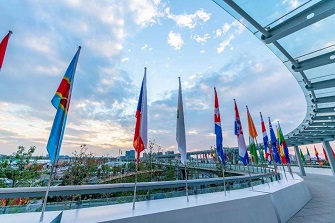
William Jones: Media and think tanks join hands to combat 'fake news' about China
Around 270 representatives of think tanks and media organizations from 99 countries gathered in Shanghai on November 6 and 7 for the second Hongqiao International Economic Forum on China's 70-year Development and the Building of a Community with a Shared Future for Mankind, to discuss the significance for the world of China's road to prosperity over the last 70 years and celebrate the success of the Belt and Road Initiative (BRI).
2019-11-11 -
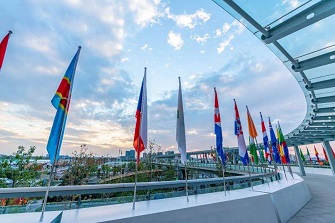
William Jones: Media and think tanks join hands to combat 'fake news' about China
Around 270 representatives of think tanks and media organizations from 99 countries gathered in Shanghai on November 6 and 7 for the second Hongqiao International Economic Forum on China's 70-year Development and the Building of a Community with a Shared Future for Mankind, to discuss the significance for the world of China's road to prosperity over the last 70 years and celebrate the success of the Belt and Road Initiative (BRI).
2019-11-11 -
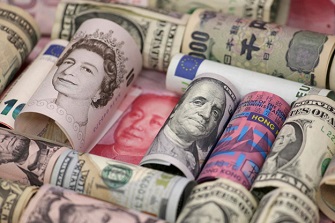
He Yafei: Global Changes Require China to Open Further
The world today faces profound changes unseen in a century, including in its economy. The rapid development of multi-polarization and economic globalization over the past several decades has brought about major changes in the balance of economic power. These changes are characterized by the rise of new powers in the East and the fall of old ones in the West, with the overall strength of developing countries and emerging economies rising considerably.
2019-11-08 -
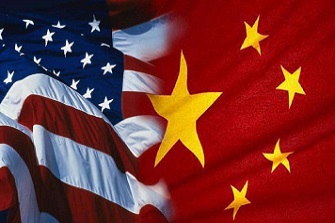
Zhao Minghao: Great importance attached to phase one China-U.S. trade deal
Simultaneous tariffs cancellation on each other's goods is an important condition for China and the U.S. to reach a "phase one" trade deal, said Gao Feng, spokesperson for China's Ministry of Commerce at a press conference held on November 7. The phase one trade deal is an important step towards the unwinding of a trade war that has inflicted significant damages to the interests of both sides. As Republican Senator David Perdue of Georgia said, the amount of trade in the phase one deal is modest, but it can prevent the two countries from slipping into a "Cold War."
2019-11-08 -
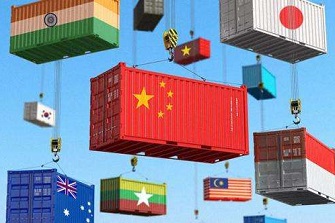
Ding Gang: Rejecting RCEP won’t make India a winner
After India decided not to join the Regional Comprehensive Economic Partnership (RCEP), some officials and scholars inside the country claimed it is "a win for all those protecting national interests." But it is China that is likely to be the real winner as with India's withdrawal, China has lost a potential challenger. Indian media reports said that New Delhi's decision not to join the free trade pact will prevent Chinese products from flooding the Indian market, which may have dealt a body blow to Indian medium and small enterprises.
2019-11-07 -
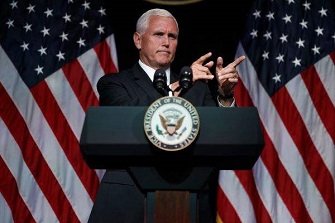
Zhao Minghao: Pence Speech Sent Confusing Signals
As China and the United States continued phase one of their consultations aiming for a trade deal, U.S. Vice President Mike Pence delivered a speech at the Wilson Center on China policy in which he said the U.S. is seeking “a fundamental restructuring of our relationship with China.” About a year ago, his speech on the same topic at the Hudson Institute was widely seen as a declaration of a new U.S. cold war with China.
2019-11-07 -

He Weiwen: Facing the global headwind, China's economy offers hope
The second China International Import Expo (CIIE) opened on November 5, in the midst of a synchronized sharp slowdown in 90 percent of the world's economies. The second CIIE also offers a hope for the world with a vast, fast-growing Chinese market and a firm commitment to open the door ever wider, which explains the very high business attendance from the world over, with 330,000 square meters show area, 10 percent up from the first CIIE.
2019-11-06 -

Guan Zhaoyu: Greece Connects China with Europe, Cultural Communication Under 17+1
17+1 is not just limited to economic trade but also refers to cultural communication. Since 2019 there have been 36 Confucius Institutes in CEE countries. This number has increased by 50 percent over five years. Especially in Hungary, where there are five Confucius Institutes now. From 2012 to 2019, the number of registered students in Confucius Institutes has increased from 15,000 to 52,000 thousand in CEE countries.
2019-11-06 -
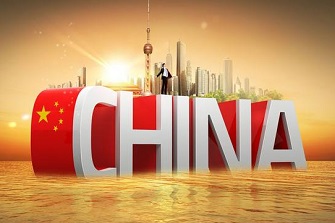
Wang Wen: Embracing and benefiting from China the best choice for the world
During my Cairo visit, I suggested to a few Egyptian diplomats that their country should allow visa-free entry for Chinese passport holders so they could visit and help promote Egypt's economic development. I was surprised to hear the reasons why this would be difficult. Apparently, there aren't enough hotels, only a few shopping malls, an underdeveloped payment system, and a shortage of Chinese tour guides. If there are too many Chinese traveling in Egypt, the country could not handle it, they explained.
2019-11-05 -
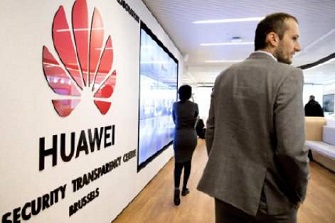
John Ross: Huawei access to 5G in UK involves a struggle as Washington continues interference
Over the weekend, the UK's Sunday Times leaked information about a fight taking place within the British government over whether or not to allow Huawei to participate in Britain's development of its 5G network. It is directly in the UK's economic interest that Huawei participates in developing the country's 5G network. But this involves a struggle in the coming weeks as it is clear that the US' Trump administration is continuing to intervene in the internal affairs of not only China, but of the UK.
2019-11-01 -

Ding Gang: China’s growth inseparable from its system
In the article "Farm lessons from China" published on The India Express, Indian scholars Ashok Gulati and Sakshi Gupta suggest that India should pay attention to China's three lessons to improve agricultural production. First, China spends a lot more on agriculture knowledge and innovation system (AKIS), which includes agricultural R&D and extension. Second, the incentive structure as measured by producer support estimates (PSEs) is much better for Chinese farmers than Indian farmers. The third lesson pertains to direct income support schemes.
2019-10-31 -
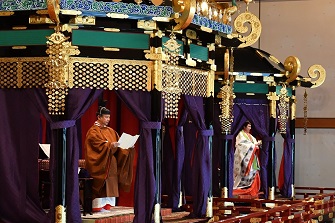
Zhang Jingwei: Romance of the Three Kingdoms, US, China and Japan
In the afternoon of October 22, the enthronement ceremony for Japan’s new Emperor Naruhito was held. Distinguished guests who witnessed the event included heads of states, royalties and high-ranking government officials from about 180 countries. Among them was Wang Qishan, President Xi Jinping’s special envoy and China’s Vice President. Attention was quickly drawn to a few noteworthy observations. Of the special envoys who attended the ceremony, Vice President Wang was of the highest level – i.e., a full state-level representative. In contrast, the US only sent a ministerial-level dignitary.
2019-10-30 -
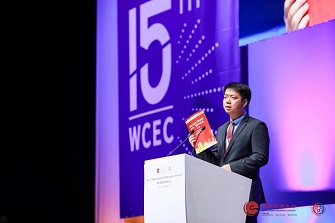
RDCY attends the 15th World Chinese Entrepreneurs Conference (WCEC)
On October 21-23, the 15th World Chinese Entrepreneurs Conference (WCEC) was held in London, England. The theme of this conference is "The New World, New Opportunities for Chinese Businessmen", which attracted more than 3,000 entrepreneurs, government officials and scholars from more than 60 countries. Wang Wen, Executive Dean of the Chongyang Institute for Financial Studies, Renmin University of China (RDCY) and Deputy Dean of the Silk Road School, Renmin University of China, was invited to attend and delivered a keynote speech at the conference. At the closing ceremony, the research report "World Chinese Entrepreneurs in the Era of Great Changes: From History to the Future" was released by WCEC and RDCY.
2019-10-29 -
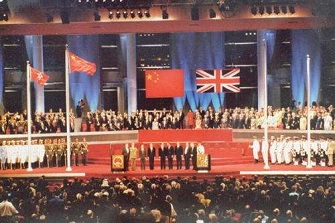
John Ross: HK radicals can't succeed
Hong Kong is part of China and the rioters have "zero chance of success" of separating the city from its motherland, an economic policy expert has said. " (For) the people who lead these protests, their demands are not the ones that they put forward, and what they really want is the separation of Hong Kong from China," said John Ross, a senior fellow at the Chongyang Institute for Financial Studies at Renmin University of China, on Thursday.
2019-10-29
























































































 京公网安备 11010802037854号
京公网安备 11010802037854号





